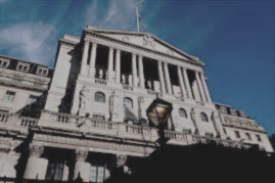BoE Keeps Interest Rates Steady Amid Ongoing Inflation Concerns
The Bank of England (BoE) has decided to hold interest rates at 5.25% for the seventh consecutive meeting, signaling caution as the UK continues to battle persistent inflationary pressures. While headline inflation has been declining, the central bank issued a stark warning: the UK is “not out of the woods yet.”
In its latest Monetary Policy Committee (MPC) decision, announced on Thursday, the BoE emphasized that despite some encouraging economic data, inflation remains a threat to financial stability and consumer confidence.
UK Inflation Falls, But Core Pressures Remain Sticky
Headline CPI inflation dropped to 3.4% in August, down from a peak of over 11% in late 2022. However, core inflation—which excludes volatile items like food and energy—has proven more stubborn, hovering above 4%. The BoE is particularly concerned about services inflation, a key indicator of domestic price pressure, which remains well above the 2% target.
Wage Growth Adds to Inflation Risk
Adding to policymakers’ concerns is the strong wage growth in both the public and private sectors. Average earnings, excluding bonuses, rose by 6.8% year-on-year in the latest figures. This level of pay growth risks entrenching inflation expectations, prompting the BoE to maintain a tight monetary stance.
According to BoE Governor Andrew Bailey, “We are seeing some positive signs, but it’s far too early to declare victory. The risks of inflation becoming embedded are still very real.”
Markets Bet on Rate Cuts, But BoE Signals Caution
Despite market speculation about potential rate cuts in early 2026, the BoE remains cautious. In the press briefing, officials hinted that rates could stay higher for longer if inflation doesn’t return sustainably to the 2% target.
No Clear Timeline for Rate Cuts
Economists and investors had hoped for clearer forward guidance, but the BoE offered little in the way of a timeline. The MPC’s statement included the phrase, “monetary policy will need to remain restrictive for sufficiently long,” reinforcing the bank’s hawkish bias.
Impact on UK Housing Market and Borrowers
The BoE’s decision to keep rates high continues to impact the UK housing market, with mortgage rates remaining elevated. First-time buyers and homeowners on variable-rate mortgages are still feeling the squeeze.
Economists warn that while inflation may be easing, the effects of prolonged high interest rates could weigh on economic growth, which remains sluggish.
Outlook: Inflation Fight Not Over Yet
While the worst of the inflation crisis may be behind the UK, the Bank of England’s latest decision underscores a critical message: the fight against inflation is far from over. The central bank is walking a tightrope between curbing inflation and supporting economic growth, and for now, policy tightening remains the priority.
Conclusion
As the BoE holds interest rates steady, its warning is clear: the UK economy is not yet out of danger. With inflation risks still looming and wage growth adding pressure, any hopes of imminent rate cuts may be premature. Businesses and consumers alike will need to prepare for a period of prolonged monetary tightening.







